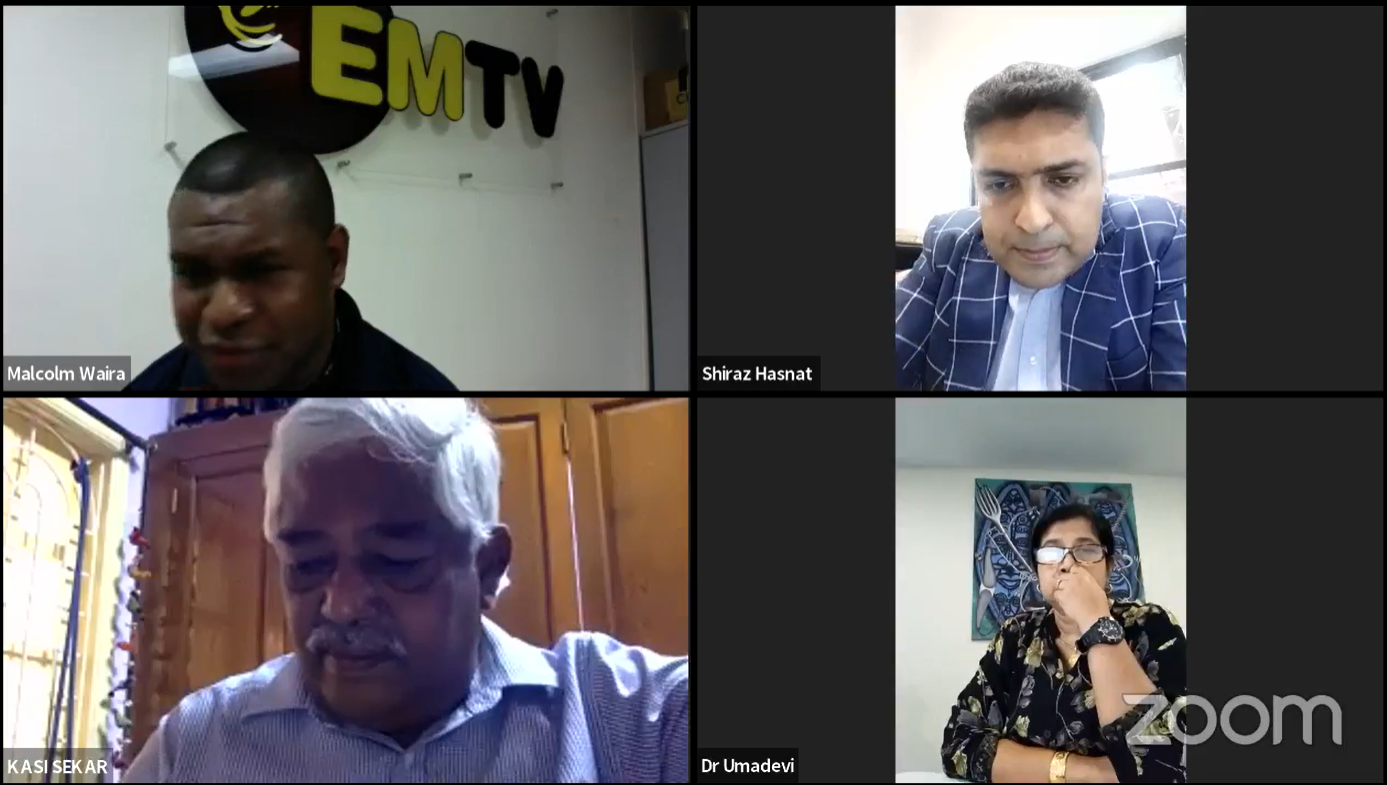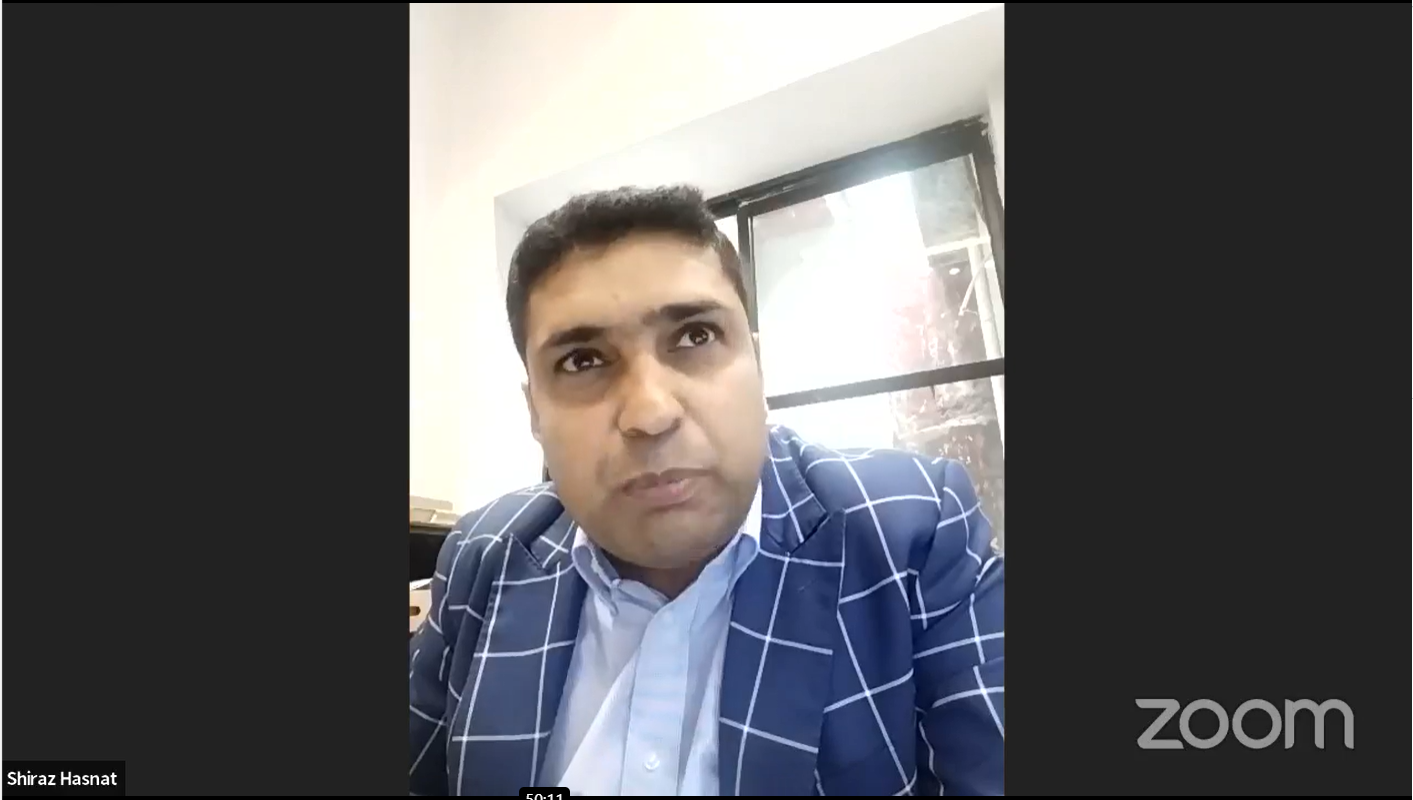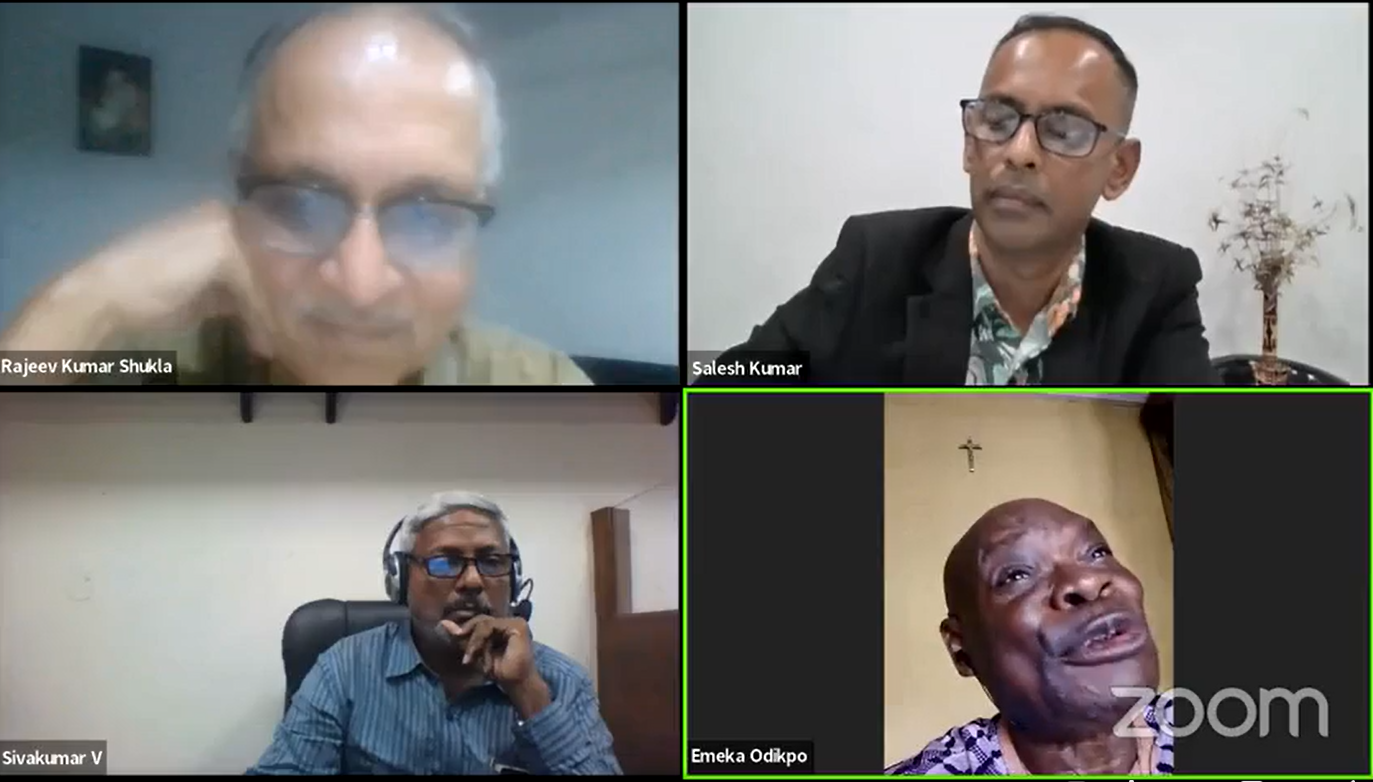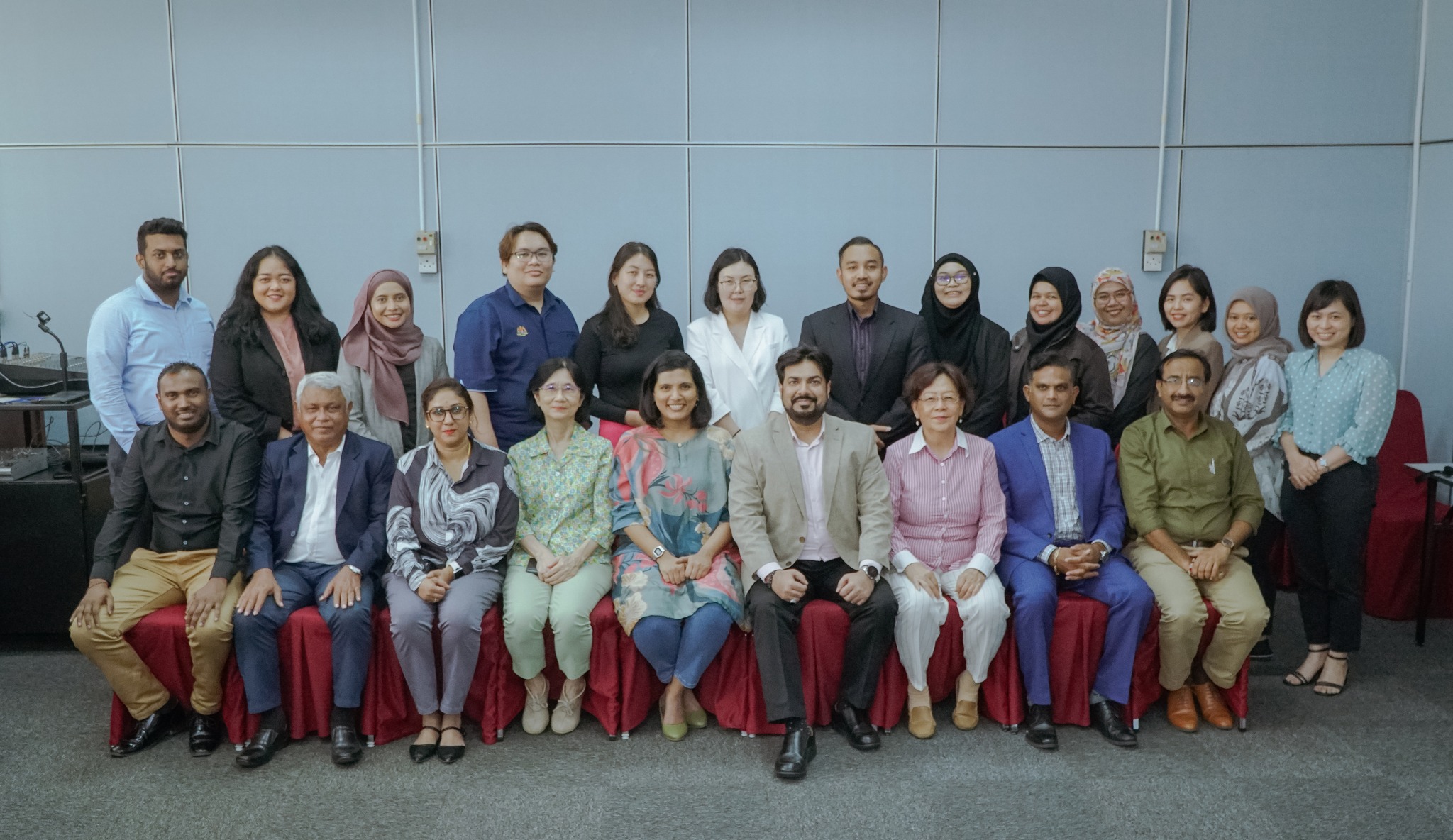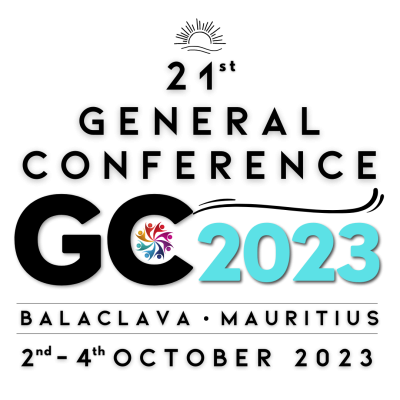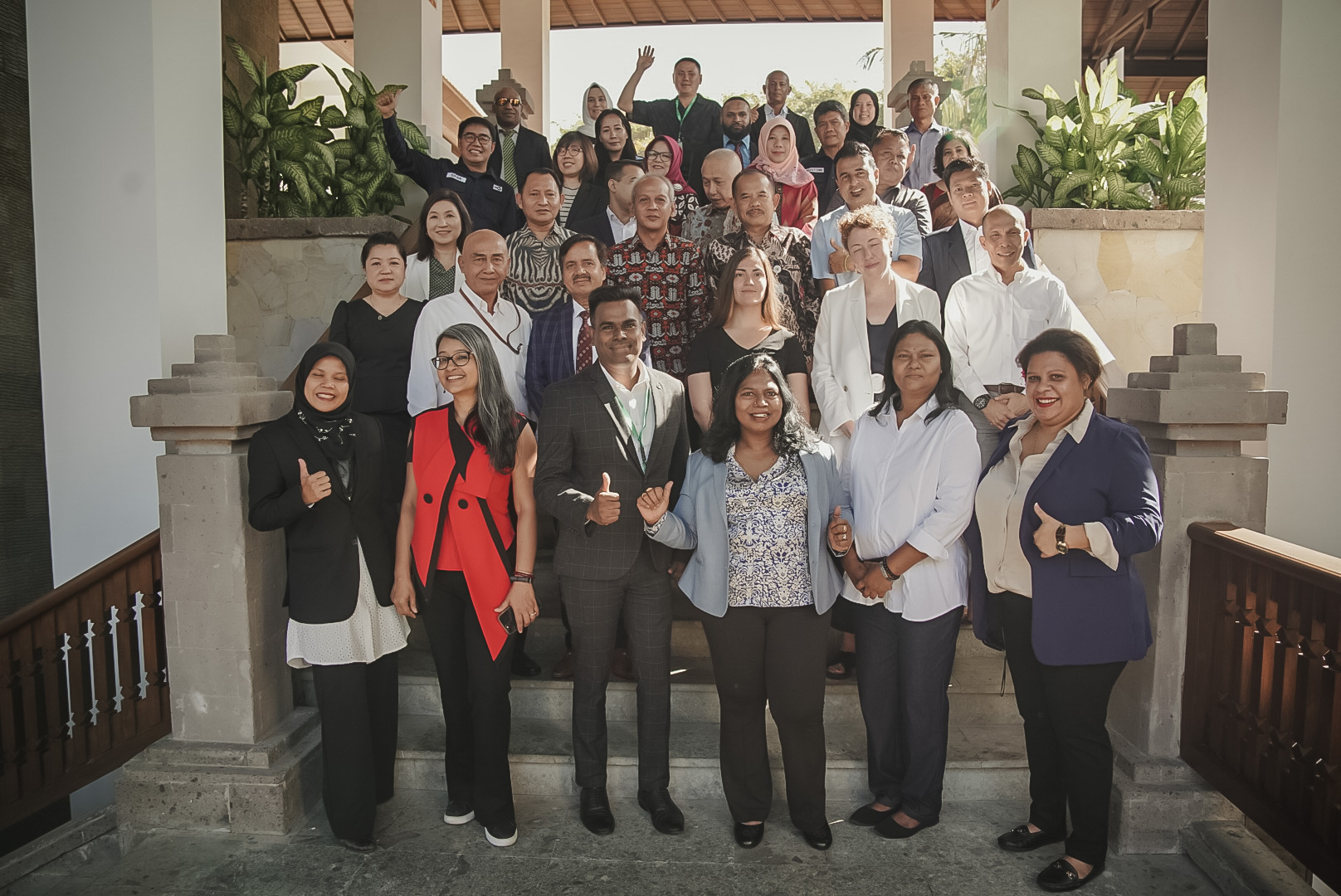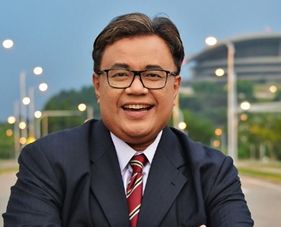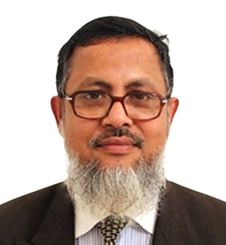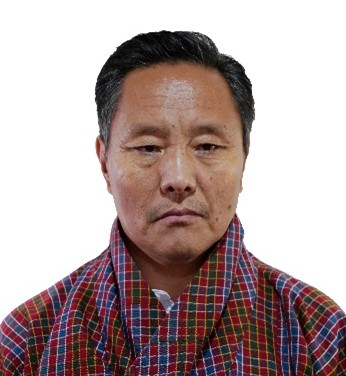Championing Mental Health: Experts Share Insights on Journalists’ Well-being and Resilience
By Dinnierose Raiko – AIBD Programme Manager
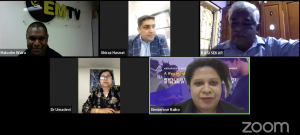
Top L-R: Moderator Mr. Malcolm Waira, Veteran Journalist Mr. Shiraz Hasnat, Head of Centre for Psycho Social Support in Disaster Management, India, Dr Kasi Sekar Bottom L-R: Director-Directorate for Social Change and Mental Health, Ministry of Health of PNG Dr. Umadevi Ambihaipar,OBE & AIBD Programme Manager Ms. Dinnierose Raiko
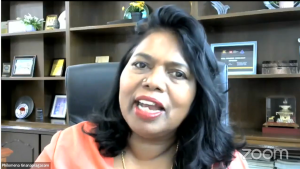
AIBD Secretariat Director – Ms. Philomena Gnanapragasam delivering the welcome remarks
In an era dominated by the relentless flow of information through social media, the mental health and well-being of journalists have become paramount concerns. These sentiments were echoed during the recent AIBD Regional Webinar on Mental Health and Wellbeing for Journalists in the age of Social Media and Disinformation, where two distinguished experts, Dr. Umadevi Ambihaipar and Dr. Kasi Sekar shared their profound expertise on this pressing but mostly kept-at-bay issue.
“It’s wonderful to see participants joining us from various parts of Asia-Pacific for this significant event,” said Ms. Philomena Gnanapragasam, the Director of the AIBD Secretariat. She extended a warm welcome, emphasizing the critical need for discussions surrounding mental health within the journalism community.
She shed light on the challenges journalists face in today’s digital landscape, emphasizing the webinar’s pivotal role in providing them with essential tools and knowledge for maintaining their mental well-being amidst the complexities of modern media. The importance of addressing mental health, particularly in light of the ongoing global crises, was keenly emphasized, acknowledging the resilience and mental fortitude required of journalists who often find themselves at the forefront of reporting significant events. Additionally, Ms. Gnanapragasam highlighted the issue of disinformation, emphasizing how it can impact journalists and their mental health, further touching on the necessity of the webinar’s focus on transcending disinformation. With expert guests, including Dr. Kasi Sekar, Dr. Umadevi Ambihaipar,OBE, alongside senior journalist Mr. Shiraz Hasnat, the platform was set for a fruitful exchange of ideas and experiences. The participants were encouraged to actively engage, share their insights, and learn from one another in this crucial conversation about mental health and journalism.
Dr. Umadevi Ambihaipar, OBE, serves as the Director of the Directorate for Social Change and Mental Health at Papua New Guinea’s Ministry of Health. Her pioneering efforts in mental health services since 1999 have earned her recognition, culminating in the Order of British Empire (O.B.E.) bestowed by the Queen of England in 2011.For Dr. Ambihaipar, mental health extends far beyond the scope of mental illness. It encompasses a holistic approach, focusing on self-perception, interpersonal relationships, and adept management of life’s intricacies. Recognizing the hallmarks of good mental health—positive self-image, healthy relationships, and effective coping mechanisms—holds the key to identifying potential issues.
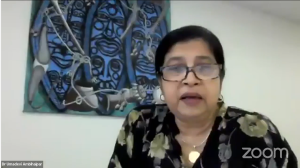
Director-Directorate for Social Change and Mental Health, Ministry of Health of PNG – Dr. Umadevi Ambihaipar,OBE
A critical distinction Dr. Ambihaipar emphasized is the need to differentiate between mental health and major mental illnesses like psychosis. She highlighted a diverse range of experiences and challenges, urging journalists to exercise precision in their reporting to ensure accurate information reaches the public.
She went on to say that mental health is influenced by a myriad of factors, including genetic predispositions, psychological well-being, social circumstances, and physical health. This multifaceted nature empowers individuals to take proactive steps toward nurturing their mental well-being.
In today’s digital landscape, where social media exerts an ever-present influence, addressing trauma assumes paramount importance. Dr. Ambihaipar pointed out that both short-term events and prolonged adversity can lead to acute stress. Recognizing the emotional, physical, and interpersonal effects of trauma is vital for journalists seeking to safeguard their mental health.
Crucially, Dr. Ambihaipar emphasized that reactions such as shock, anger, and a sense of loss of control in the aftermath of trauma are entirely normal. These are intrinsic components of the human experience and should not be viewed with alarm. Instead, acknowledging them as natural responses enables individuals to process and move forward.
Dr. Kasi Sekar, an eminent figure in psycho-social support in disaster management and community mental health in India, adds further depth to the discussion. With a career spanning over four decades at the National Institute of Mental Health and Neuro Sciences, Bangalore, Dr. Sekar’s contributions have been instrumental in shaping mental health services in the country.
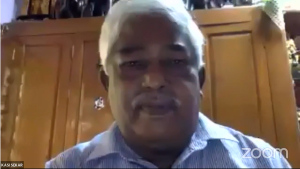
Head of Centre for Psycho-Social Support in Disaster Management, India – Dr. Kasi Sekar
In the age of social media and information overload, Dr. Sekar stresses the importance of understanding the unique challenges faced by journalists globally. He emphasizes that journalists hold a critical role in emergency situations, not only reporting facts but ensuring that the information disseminated is trustworthy, balanced, and sensitive to potential mental health consequences.
Dr. Sekar acknowledges that journalists often operate in high-stress environments, frequently dealing with traumatic situations. He underscores the significance of addressing mental health issues, as nearly two-thirds of individuals within the profession are affected by mental health conditions due to their work.
To foster resilience and well-being, Dr. Sekar advocates for a balanced routine, physical exercise, adequate sleep, mindfulness practices, and limiting exposure to digital media. He emphasizes the importance of seeking support, staying connected with loved ones, and engaging in activities that bring joy.
The awareness through this webinar can now serve as a guiding light for journalists and individuals navigating the web of mental health, stress management, and resilience. By prioritizing self-care, seeking support, and cultivating resilience, individuals can lead healthier, more fulfilling lives in the face of adversity. Their expertise provides a crucial roadmap toward achieving this vital goal.
The profound insights shared sparked a wave of curiosity, igniting a number of very important questions from an audience of over 60 participants hailing from the Asia and Pacific Regions. AIBD aspires for this webinar to not only prompt journalists to seek help when needed but also to drive open discussions and shatter the barriers and stigmas surrounding mental health within the profession. It’s a call to make these conversations the norm and fostering a supportive and understanding community for all.
The webinar was moderated adeptly by Papua New Guinea’s EMTV Presenter and Producer Mr. Malcolm Waira, ensuring that the voices of the experts resonated effectively with the audience.
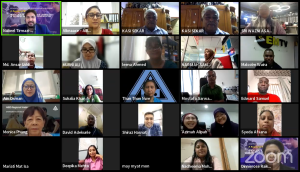
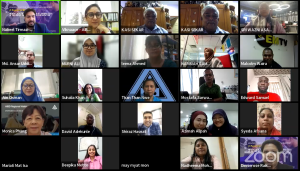
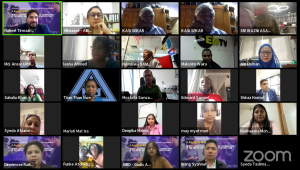
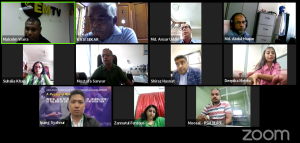


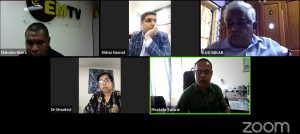
Related Story: Journalists need to prioritize their own mental health. – AIBD
AIBD Regional Webinar on Mental Health and Wellbeing for Journalists in the age of Social Media and Disinformation
Championing Mental Health: Experts Share Insights on Journalists' Well-being and
Journalists need to prioritize their own mental health.
Mr. Shiraz Hasnat, a Veteran Journalist, Shares his Journey of
Mastering Sports Coverage: An AIBD Regional Webinar on Sports Broadcast & Journalism Fundamentals
By Dinnierose Raiko During the recent AIBD Regional Webinar on Sports
Empowering Journalists for Climate Change Reporting
From September 12–15, 2023, the AIBD hosted a four-day workshop
Announcing the 48th Annual Gathering / 21st AIBD General Conference and Associated Meetings 2023
The AIBD Secretariat is pleased to announce that the 48th
Exploring Media Leadership in the Digital Age: Prominent Broadcasters Gathered in Bali to attend the AIBD/IPPTAR/EBU/DW Leaders for Digital Revolution workshop prior to AMS2023
By Dinnierose Raiko In the ever-changing realm of digital transformation, broadcasters,
“The 18th Asia Media Summit (AMS) 2023 serves as a platform for world’s leaders to learn from each other, State-of-the-art Technology”, said Mr Suhaimi Sulaiman, Director General of RTM
The 18th Asia Media Summit (AMS) 2023 serves as a
“The 18th AMS 2023 in Bali served as an international platform to discuss crucial role of Media in enhancing economic sustainability”, said Mr Nasrullah Irfan, Director-General of Bangladesh Betar
The 18th AMS 2023 in Bali brought together leaders and
“The 18th AMS 2023 in Bali set the benchmark for future AMS”, said Mr Kaka Tshering, CEO Bhutan Broadcasting Service Corporation
"The 18th AMS 2023 in Bali has set the benchmark
“The 18th Asia Media Summit 2023 in Bali sharing media practitioners’ immense knowledge & expressions”, said President of the Maldives Broadcasting Commission (MBC), Ms Maryam Waheeda
The 18th Asia Media Summit 2023 by AIBD, held in


